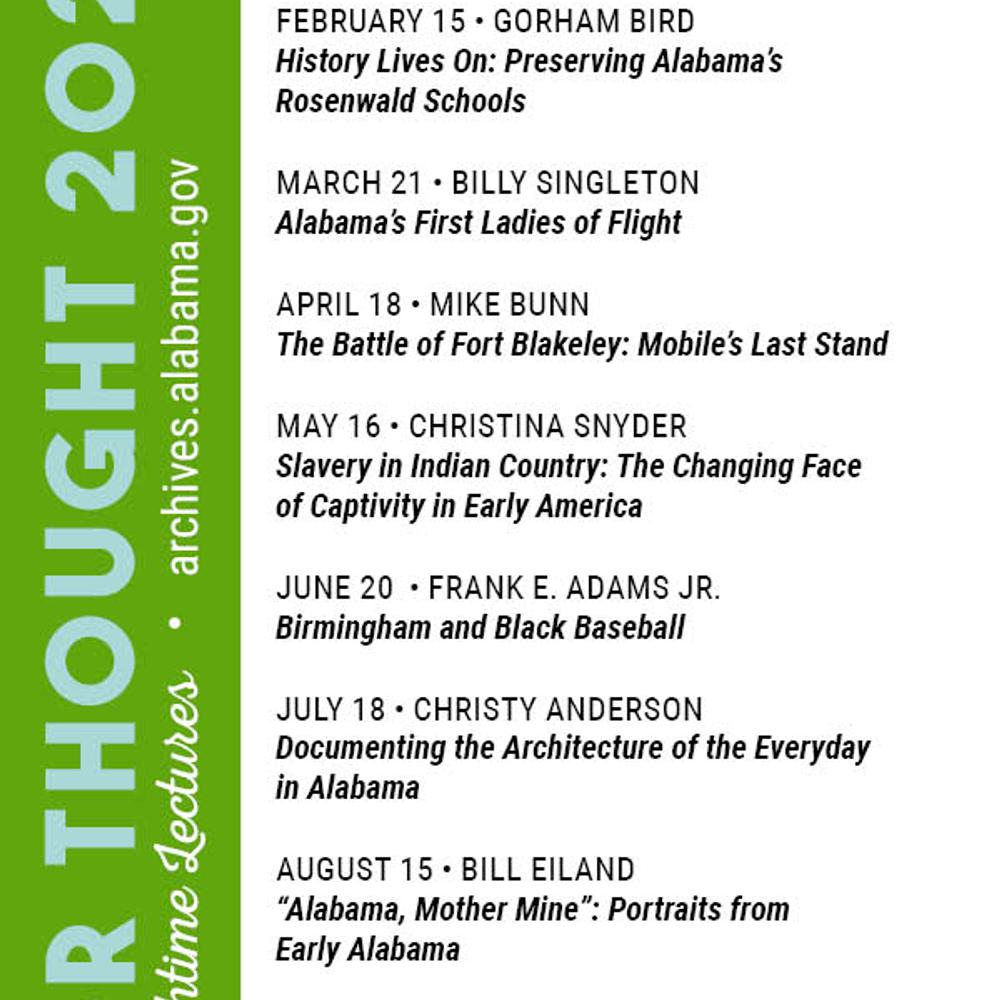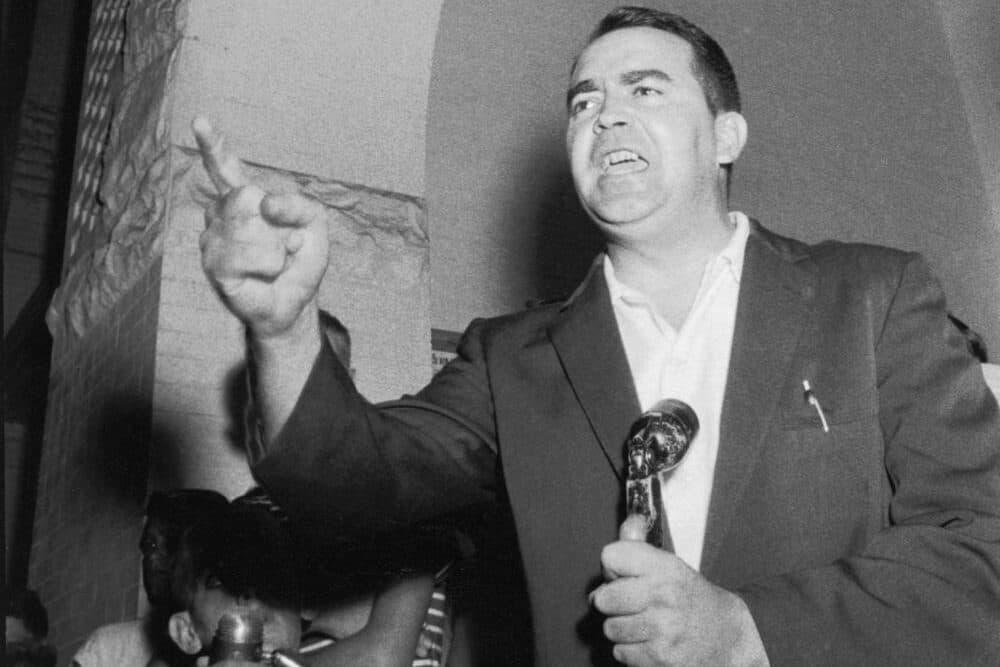Many Alabamians knew Asa Carter for his political writing and activism in the 1960s, but few are aware of how he reinvented himself later in life into a celebrated Western novelist.
Carter started as the wordsmith for state's rights, for segregation and sometimes for candidate George Wallace.
Carter was a gifted writer, "the poet laureate of the Old South."
Wallace's first inaugural address as Alabama governor was his most enduring early writing. In January 1963, Wallace stood on the steps of the State Capitol, speaking to thousands in person and more by TV.
At this beginning point of what turned out to be four terms as governor, Wallace spoke the words that Carter had written: "Segregation today, segregation tomorrow, segregation forever."
The line evoked wild cheers from the large, white crowd on historic Dexter Avenue.
The longer quotation from the often-quoted Wallace speech waxed poetic: "In the name of the greatest people that have ever trod this earth, I draw the line in the dust and toss the gauntlet before the feet of tyranny, and I say: 'Segregation now, segregation tomorrow, segregation forever.'"
Wallace and Carter thought the segregation passage would make the national news and the history books. It did.
Asa Carter had been a segregationist organizer in the 1950s and 1960s. He had a syndicated segregationist radio program broadcast from Birmingham's WJLD radio. He organized the North Alabama White Citizen's Council.
After a break with Wallace and an unsuccessful "Carter for Governor" campaign in 1970, Carter morphed into a fiction writer, mostly of Western tales. Without announcing it, he took the pen name "Forrest Carter."
He moved to Abilene, Texas, and his writing switched focus from the South to the West. At this point, his literary career took off. His major novel "Gone to Texas" was renamed "Outlaw Josey Wales" and was made into a blockbuster motion picture of the same name. Clint Eastwood starred in the movie and directed it.
The fact that Forrest Carter, the author of award-winning "Outlaw Josey Wells," was one and the same as Asa Carter, the former political writer, was unknown in Alabama.
After the movie hit, Carter was interviewed in New York on "The Barbara Walters' Show" as "Forrest Carter." He talked about the film and the book. There was no mention of former political writing in Alabama. The name "Asa" never came up.
People who had known Asa Carter in Montgomery saw the national show, and many thought they recognized Asa Carter. Forrest Carter denied he was Asa.
It was Asa Carter.
Except for followers of 1950s and 60s Alabama politics, few paid attention. A new generation of Alabamians read "Gone to Texas" and watched the movie "Outlaw Josey Wales." They did not know that the author had a previous writing career in Alabama politics. Mostly, folks still don't know this factoid.
Forrest Carter wrote another successful book. "The Education of Little Tree" was released first as a memoir but later was reclassified as a novel. It portrayed Carter as part Cherokee Indian (likely true) and raised by Cherokee grandparents (untrue). It, too, was the subject of a video production in 1996.
Now, a lecture on Asa Carter will be given at Alabama's Department of Archives and History. Author Dan T. Carter (no relation) has put together an hour-long lecture for Thursday, January 18, at the Archives Auditorium in Montgomery. It is free. No tickets or RSVP are needed. It will be from noon to 1 p.m. Some attendees bring a brown bag lunch. Drinks are provided free.
The lecture venue is at 624 Washington Avenue in Montgomery in the auditorium of the state archives building.
Dan Carter released a book in December, "Unmasking the Klansman: Asa Carter's Bizarre Double Life."
Asa Carter's two-part life left more questions than answers. Will those questions be answered in the lecture on January 18? Are they answered in the new book?
Did Asa Carter come to feel that his segregation stance was wrong?
Did Asa Carter regret the segregation speech? Did he take any repentant steps?
Did Asa Carter play any role in George Wallace's later modification of his segregation stance?
Did Asa Carter have further relations with Wallace after his book and movie success? Indeed, Gov. Wallace denied ever knowing Asa Carter, saying any writing was arranged and paid for by his staff. Will this be addressed?
If you cannot attend the Asa Carter lecture in person on January 18, you can hear it live streaming on Facebook or the Alabama Department of Archives & History's YouTube channel.

"Whatever the future, nothing ever truly remains the same." - Dan T. Carter.
Jim Zeigler is a former Alabama Public Service Commissioner and State Auditor. You can reach him for comments at ZeiglerElderCare@yahoo.com.
Don't miss out! Subscribe to our newsletter and get our top stories every weekday morning.










